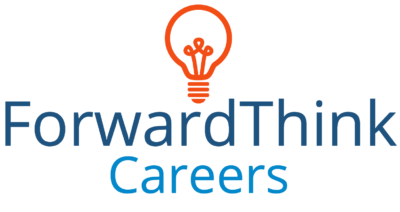

You might have heard job search experts talking about keywords, but never really understood how they worked. It’s safe to say that having the right keywords in your resume and LinkedIn profile can make the difference between getting called in for an interview and not.
How did keywords rise to such a level of importance?
Back before online job boards, LinkedIn…and, well…the internet, recruiters used to advertise jobs in newspapers and industry-related publications. Job seekers would mail in their resume and cover letter, and recruiters would open envelope after envelope and read each document. They might have gotten a few dozen applications per job opening. No big deal.
Now, with the advent of hundreds of online job boards and the ability to apply for jobs with a click of a button, recruiters now receive hundreds (sometimes even thousands) of applications per position. Holy smokes! As you can imagine, it’s humanly impossible for recruiters to read each and every resume, so they enlist the help of an applicant tracking system (ATS) to screen out unqualified applicants. How do they do it?
This is where our handy dandy keywords come into the picture…
Using the applicant tracking system, recruiters will choose a string of keywords that closely aligns with the job description in order to find their ideal candidate.
Let’s say that a recruiter works at a financial services company and has an opening for an administrative assistant. Based on the duties and qualifications listed on the job description, he or she might choose the keywords: administrative assistant, finance, calendar management, travel arrangements, expense reports, Microsoft Office, Asana, etc. As you can see, keywords are usually a combination of a title, industry, set of skills and technologies required for the position.
The ATS will then rank the resumes based on a match percentage of those keywords. So the candidates who have the most matching keywords will rank the highest. (I think of it like using different filters on Yelp when searching for the perfect restaurant.) The recruiter might only look at the top 20% of resumes and the rest never get seen.
So you might be thinking…this is all well and good…but how the heck do you know which keywords to include on your resume?
Thoroughly reading the job description is crucial — it’s your roadmap. It lays out all the most important responsibilities and qualifications, with keywords at every turn. The most critical ones usually get repeated throughout the job description. That’s why it’s so important to tailor your resume to each job description. If you’re not able to truthfully include 80% of the job description’s main keywords on your resume,it probably won’t make it through the applicant tracking system. Remember, recruiters will most likely only read the top 20% of applications. So make sure you have all the necessary keywords to beat the odds.
What about LinkedIn?
Having the right keywords on LinkedIn not only helps you when applying for jobs — it can also help recruiters find you. That’s because recruiters aren’t only looking at resumes that come to them. They’re also proactively searching for candidates on LinkedIn. How? By searching for a set of keywords using LinkedIn’s “Recruiter” platform.
But without a specific job description, how do you know which keywords to include on LinkedIn?
You obviously can’t keep changing your profile every time you apply for a new position. So you’ll want to consult 10-15 relevant job descriptions to find the keywords that keep popping up over and over again. You can paste several job descriptions into a word cloud tool like wordle.net to find repeated keywords.
Make sure to include your top keywords throughout the different sections of your LinkedIn profile — Headline, Summary, Experience, Skills & Endorsements, Interests, etc. The repetition of these keywords (without overdoing it) improves your profile’s search engine optimization (SEO) and ranks you higher when recruiters search for these words.
Now you can see why keywords really ARE all they’re cracked up to be. Use them to your advantage to get the attention of recruiters for the right positions.



